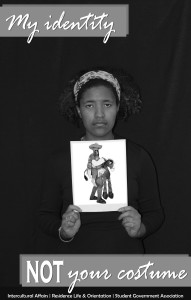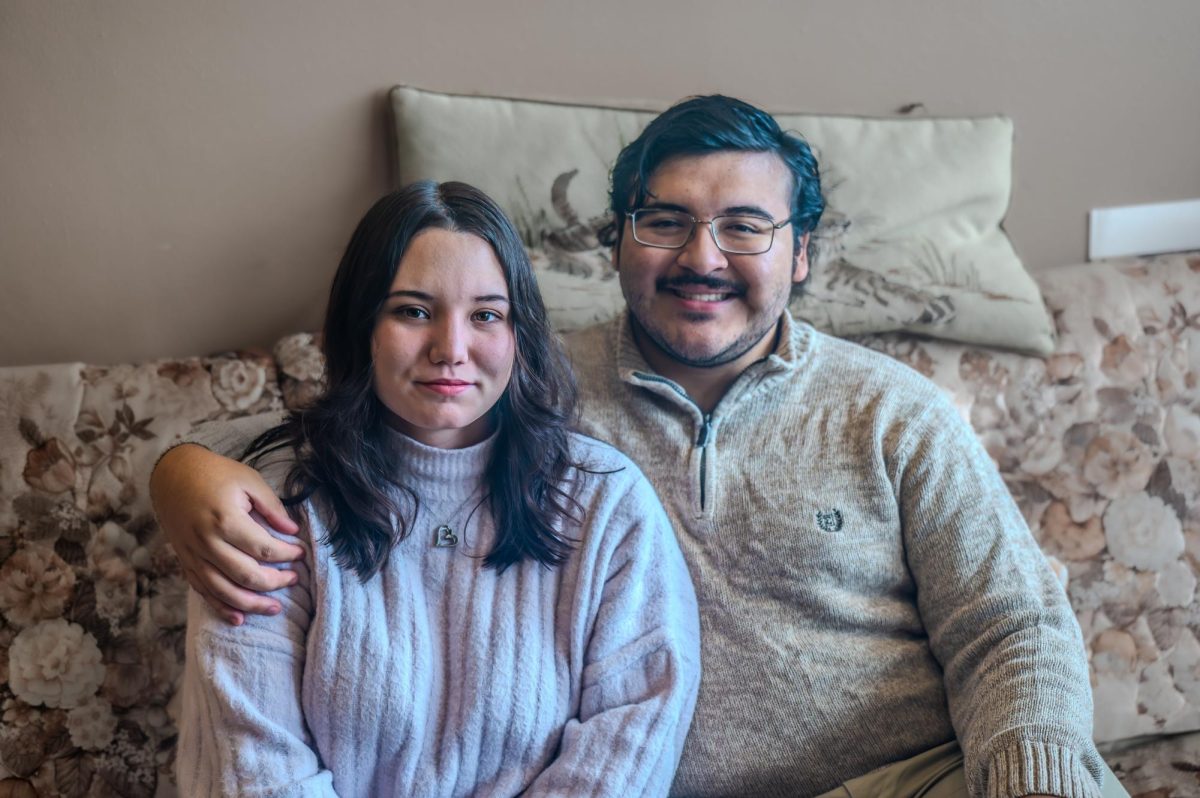With Halloween fast approaching, many students are trying to decide their costume for that special night. However, there is a handful of ethnic and cultural stereotypes amongst the large arrange of costume choices. This issue has provoked the Office of Intercultural Affairs, Residence Life and the Student Government Association (SGA) to come together and create a campaign to bring awareness to cultural appropriation.
This idea first came up early last month, when CaNaDa Residence Life Coordinator (RLC) Annie Butler contacted SGA Diversity and Outreach Coordinator Anita DeWitt ’17 after seeing the “My Identity, Not Your Costume” campaign done by Ohio University in 2011.
“[She was] excited about creating a similar event on campus, [so] she reached out to multicultural groups to increase participation,” wrote Cassidy Hilburn ’19, a member of the SGA Outreach Committee, in an email to The S&B.
One way they took action was by holding a campus wide discussion titled “Caramel Apples and Conversation on Cultural Appropriation” on Oct. 26.
“The purpose of the event was to foster a discussion regarding the Grinnell Halloween experience, what cultural appropriation and appreciation look like, and how Grinnellians can come together to positively celebrate Halloween,” Hilburn wrote.
Leslie Turner, Assistant Dean of Students and Director of Intercultural Affairs, mediated the discussion by dividing students into small groups and then asking all participants what they learned from exchanging thoughts.
“Students shared personal stories about what certain stereotyped costumes and identities meant to them, asked gray area questions regarding the line between cultural appreciation and appropriation and advocated for costumes that didn’t rely on cultural symbols,” Hilburn wrote.

The SGA also created posters that depict students holding images of culturally offensive Halloween costumes which are displayed around campus. They asked students that are involved with the cultural groups on campus to be in these posters.
“I didn’t feel forced into anything … [the organizers] just said, ‘I’m just here to show you that this actually does happen, and … to see your opinion,’” said Glorianne Dorce ’17, one of the students in the posters.
She illuminated how the campaign has given many students and organizations a unique platform to voice their opinion.
“A lot of times, you want to give out your opinion, but you don’t have the … urge to do it or you don’t think that people will want to hear your opinion,” Dorce said.
Some may wonder what the goal of this sort of social justice campaign is at what is already a liberal and progressive institution. However, Jarvis McCowin, RLC for Clangrala, is quick to point out that any social justice movement is a never-ending process.
“It keeps the already liberal and progressive mindset and [allows students] to keep reflecting on who they are. Regardless of where you are … there’s no endpoint to diversity, equity and inclusion,” he said.
Dorce also said that the campaign, as well as the resulting discussions and dialogues, are very much in the Grinnellian spirit.
“Even though it’s a liberal college, it teaches you to be open to other people’s opinions … Some people may have conservative views, and some may be more liberal than others, but that doesn’t mean you can’t communicate,” she said.
There is no doubt that these posters have sparked discussion, whether at the officially facilitated discussions by SGA and Intercultural Affairs or in more casual settings.
“In Grinnell, we sometimes forget that even though we’re out of class, we still have great conversations with our friends … you could think, ‘I’ve had something interesting happen in this [situation], maybe I can talk about it in class,’” Dorce said.
The individuals behind this campaign are concerned with the sheer numbers of people who have experienced cultural appropriation. They are attempting to shed light on an issue that they believe is very relatable, and unfortunately prominent, regardless if it is in the form of a costume or not.
“I grew up in a household that … didn’t celebrate Halloween, so the only things I would see were in the media. I don’t know if my [younger] self was able to understand what I was seeing,” McCowin said. “Having gone through graduate school and … having the language to be able to explain things has definitely given me a much clearer picture.”



















































